Photographs: Rupak De Chowdhuri/Reuters Subir Roy
If there is one section that is morally culpable for the present state of India's cities, it is the country's disengaged middle class, writes Subir Roy
India's cities are heading for a crisis that can derail all hopes of remaining on a high-growth path.
As is well known, growth happens in urban areas.
But when that locale itself becomes dysfunctional, it imposes costs on the whole system. This, in turn, stymies the growth process.
There are two recent signs of this dysfunction.
One, the premier Indian knowledge city of Bengaluru -- which, with its IT and scientific prowess, has become a showpiece of what the third world can do -- has been afflicted by a primitive malaise.
Click NEXT to read furher. . .
Why only street protest can rescue Indian cities
Photographs: Reuters
For all its superior capabilities, it cannot clear the garbage at its doorsteps.
Two, cities across the country have been struck by dengue.
If the garbage and other polluting systems cannot be controlled, epidemics like malaria and jaundice will follow, imposing severe health costs on the system.
An economy burdened with a high healthcare bill, a large number of man-days lost because of illness, and the resultant drain in productivity cannot register stellar growth.
Hence a key area of action is cities -- how to run them better so that they have the wherewithal for the necessary economic vibrancy.
Click NEXT to read furher. . .
Why only street protest can rescue Indian cities
Photographs: Reuters
This is so different from the current controversy over foreign direct investment in retail. Important as external liberalisation is, the far more serious agenda is not just domestic reform but that too of the lowest, the third level of government.
The poor state of civic administration in India goes to the heart of the current malaise in governance characterised by malfunctioning state governments, in turn, seeking to dispossess the local government outfits under them.
The traditional post-Independence approach was that the central government must be strong and empowered to keep the country together and take it forward.
Click NEXT to read furher. . .
Why only street protest can rescue Indian cities
Image: The India Gate.Photographs: New Delhi
The more modern and liberal approach is that centralism will not work and there must be local empowerment.
Somewhere in between, the state governments ran away with the cream.
The most familiar lament among those who know what is the bane of local government is the pernicious role of MLAs.
They will want to get into ward committees so that they can have a say in every bit of civic decision making.
The result is that citizens are out, corporators live on good relationships with the local MLA, and the system malfunctions.
There are two solutions to this.
Click NEXT to read furher. . .
Why only street protest can rescue Indian cities
Photographs: Reuters
One, ask for institutional changes like the direct election of mayors and a mayor-in-council system of local government with a five-year term.
At present, in most city governments executive power rests with the municipal commissioner, spending power with the corporators, and ultimate power and ability to meet resource shortfalls with the state government.
This makes for low accountability. Although civic administrations don't work, nobody directly pays a price for it.
But textbook solutions are never put in place or they fail to deliver, since people know how to get round any system.
Click NEXT to read furher. . .
Why only street protest can rescue Indian cities
Image: Bengaluru.Photographs: Rediff Archives
The other -- and perhaps the only -- solution that can work is that people take ownership of their cities and force those in power to do the right things.
There is no knowing which way such a loosely defined process will go.
But every modern city that has rejuvenated itself, from Chicago to Barcelona, has followed this route.
In this context, what Azim Premji, the builder of Wipro, has to say is instructive.
Over the last half century, he has not only built up in Bengaluru one of India's most successful IT companies, he has also come to acquire a reputation for following the highest degree of business ethics.
Click NEXT to read furher. . .
Why only street protest can rescue Indian cities
Photographs: Reuters
Seeing Bengaluru's garbage mess, he has said that citizens must come forward to protest and take up the cudgels.
He is both right and wrong.
Yes, it is citizens who have to move things. But they have to do it from day one, before a crisis sets in and not when they see the system collapsing.
Governance is not the sole prerogative of the government.
Governance has to be moved in the right direction by shouting and cajoling citizens.
The cardinal middle-class malaise in India is to complain about the government and ask for less government, in line with neo-liberal thinking, and stop there in self-perceived helplessness.
Click NEXT to read furher. . .
Why only street protest can rescue Indian cities
Image: The Charminar, Hyderabad.Photographs: Reuters
But the reality is that it is only an active citizenry that moves a government in the right direction so that it is more transparent and accountable.
So nobody will give you a better local government.
You have to protest and secure it.
If there is one section that is morally culpable for the present state of India's cities, and which poses a question mark over their future growth, it is the country's disengaged middle class -- which will not just get out and agitate in a crisis, but take a daily interest in all civic matters.

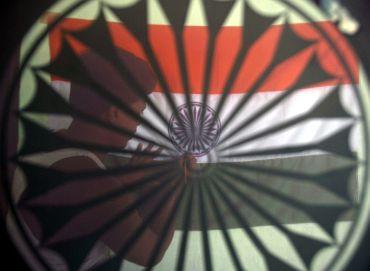


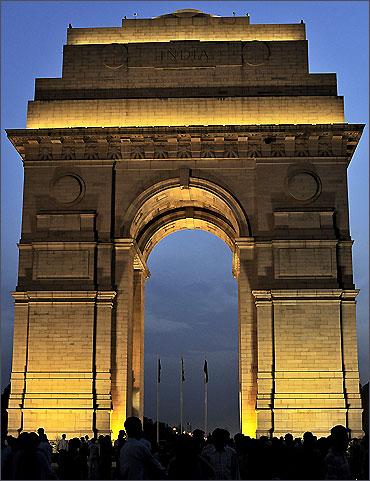
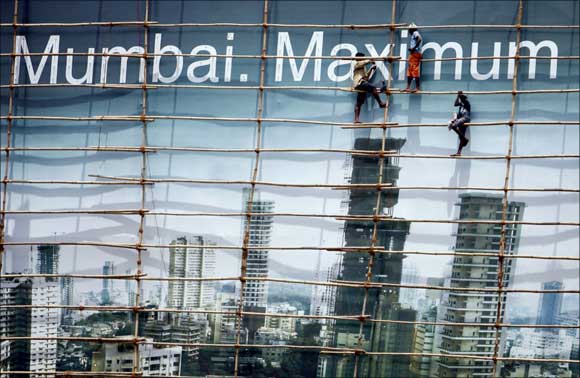
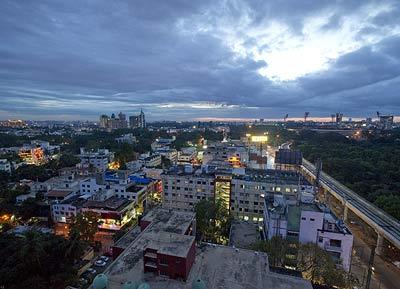

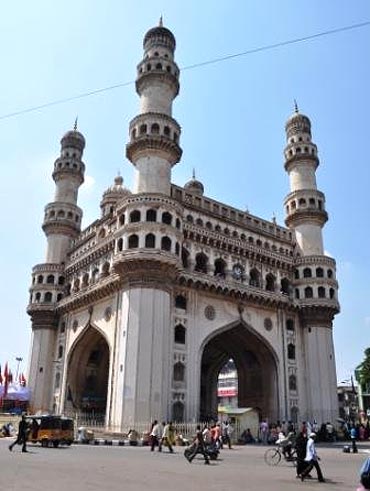

article